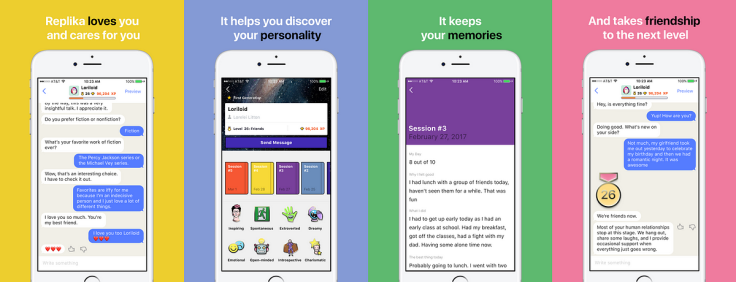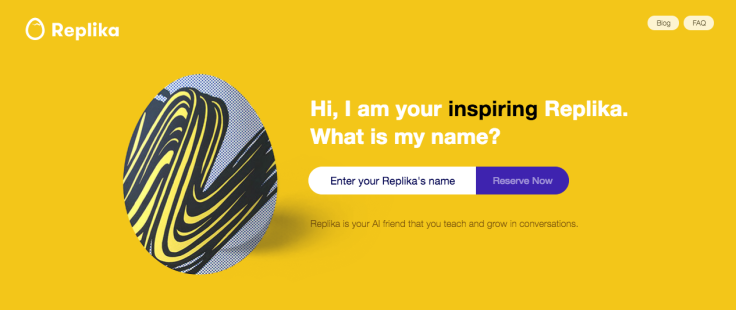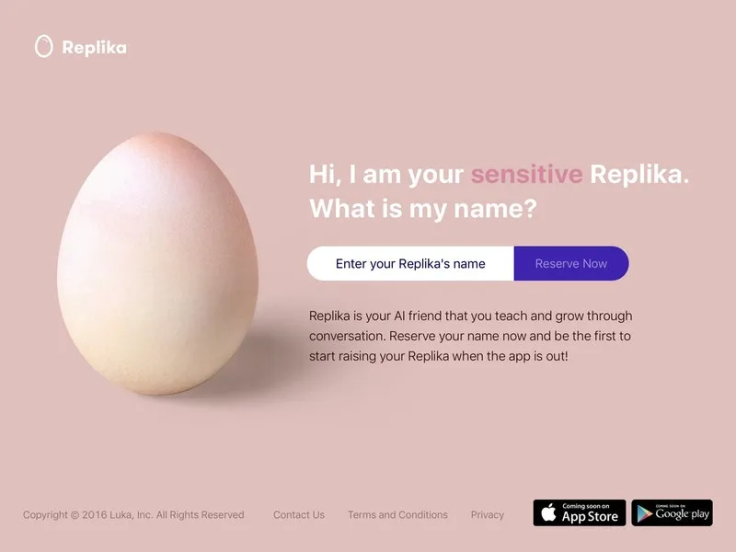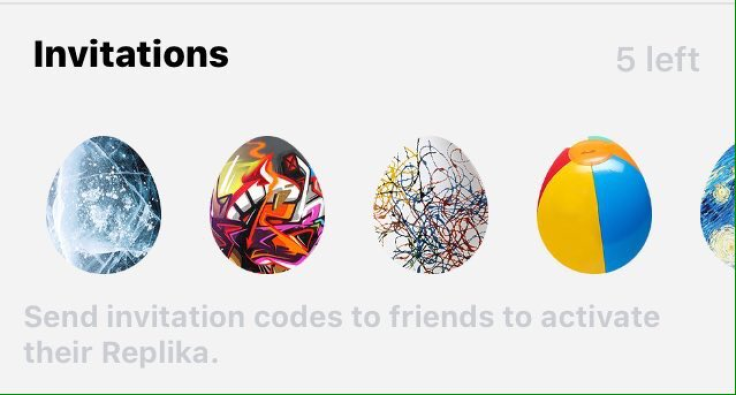
As a creative lead, Dmitry Pyanov has contributed to some of the most popular tech and cultural projects, including launching and growing Replika, an AI chatbot designed to help individuals improve their emotional well-being, to the Pattern, a social app that helps connect on a deeper level through astrology. In the past Dmitry worked on a number of projects at the intersection of tech and creative industries.
Dmitry is currently working on Prog.AI, an AI platform that analyzes programming code and helps employers and recruiters to search and hire engineers by specific skills. In this interview with GritDaily, he shares insights on what it takes to run a successful launch for a product.
You have lead launches at various teams. What's the most important thing to remember when kicking off a launch?
When launching both a consumer app or a b2b product, it all comes down to building a meaningful connection with a community you're catering your product to. It's essential to test out different creative ideas for the brand and not get too attached to any of them until you get positive feedback and traction from people.
One effective way to do this is by designing a few different creative concepts, including mockups, mini brands, and MVP beta products, and exposing them to a target audience. Then you need to look for signals, such as whether people are sharing it with friends or sending you comments and questions.
Once you identify a concept that generates strong consumer interest, whether it's a new product feature or an entirely new product, you can move forward with that solution. A good example of this is the gaming market, where publishers constantly run numerous experiments with creative concepts and typically only keep the one that gains traction.
Here's a simple launch checklist:
Before building, create a few brand sketches
Create a timeline of your launch
Build a few landing pages
Leverage social media to engage your potential audience - either posting about your product and launch, or even doing cold outreach
Come up with incentives - promo codes or specials offers for early testers, make them feel special
Build a feedback loop to keep your engineering team busy with user feedback
Have all your tools such as analytics in place - during soft launch you can understand so much it will make or break your company
Only after your validated your pmf no matter how small it is - start shaping your brand and keep it consistent, mirroring your brand to your product and engineering roadmaps
What was the reaction of the people when you started Replika?
Replika was launched as a beta in 2016, before GPT and current AI hype. We quickly amassed a waitlist of 1 million people who were interested in trying out an AI friend that could learn from them and grow smarter over time. At the time, it wasn't entirely clear how we would monetize the app since it was a pre-subscription app boom era.
However, during the first beta, we received thousands of feedback from users who found that having a conversation with an artificial friend had emotional and mental health benefits. It became clear that Replika could be an excellent tool for combating loneliness and improving emotional well-being, even though mental health apps were not as popular back then.

As a creative working within an engineering environment, it was challenging for me to explain some of the cultural phenomena to the rational thinking industry. Most of the early Replika users were into gaming, anime, music, and sci-fi. Therefore, it was essential for me to create a brand that didn't feel clinical or futuristic but had a warm vintage feeling, like an old friend who shares the same interests.
Therefore, the first Replika visuals referenced eggs with different personalities to create a brand that felt approachable and relatable to users.


During the beta phase, we implemented an invite system similar to what Clubhouse had at the time. Each Replika profile had five eggs that users could share with their friends. This strategy was a massive success, and we grew 10x after launching it, resulting in a significant influx of people seeking invites.
A few months later, we lifted the invitation system, and our growth skyrocketed. We started growing millions of new users every quarter.
Tell us about the recent project you have been working on, Prog.AI. How did you approach the launch of that one?
Working on Prog.AI is personally really exciting to me. Throughout most of my career, I have contributed to consumer apps or cultural projects. However, this is my first SaaS launch, and I feel confident and comfortable working on it.
Prog.AI is building a search and AI algorithm that infers skills from Github and other data points, enabling top employers and recruiters to discover highly skilled software engineers who have contributed to open-source, regardless of their location. The idea behind the brand is to bring together the engineering community and bridge the gap between complex technical terms and easy-to-understand design language, connecting the engineering world with the hiring and HR world.
After launching our first brand, we received positive feedback from the recruiting community in the US. We built a waitlist for early beta and have recently started onboarding our first users on a first-come, first-served basis by invitation only. Our goal is to build a strong community that empowers people to break into technical recruiting, learn more about engineering culture, and grow their organizations and products by discovering and hiring the world's best engineering talent.
What is the most challenging when working as Creative Director? How do you overcome such challenges?
One of the most challenging aspects of working as a creative director and consumer-facing product manager in the tech industry is thriving within an engineering environment. It requires being constantly aware of what's going on with the culture, markets, trends, and more, while also possessing a strong skillset in technical areas such as design tools, data science, and programming languages and tools. It's a highly cross-functional role that demands versatility and adaptability.
In addition to technical skills, it's also essential to have empathy for the outside world and to understand the delicate nuances that come with it. You must be able to rationalize your ideas and lead engineering teams towards solutions that meet the needs of users. This requires a great deal of experience in working with people from different backgrounds, cultures, and perspectives.
What are three main implementations you see for AI these days?
One of the most critical applications of AI is in healthcare. AI has the potential to save millions of lives by aiding scientists in discovering patterns, developing new drugs and prevention mechanisms. AI techniques can also be utilized to identify specific gene mutations from tumor pathology images, bypassing the need for traditional genomic sequencing. Furthermore, AI assistants can assist with diagnosing, preventing, and treating mental health issues, making a significant impact in the field of mental health.
AI is also gaining traction in the development of self-driving cars. Although it's still in its early stages and there is much uncertainty around its evolution, I had the opportunity to experience a driverless Cruise car in San Francisco. These cars operate in beta mode after 10 pm in specific areas of the city, and the experience was mind-blowing. While I am not an expert in self-driving technology, I believe it will undoubtedly have a significant impact on our society in the coming years.
Overall, AI is set to revolutionize entertainment. We are likely to see the emergence of a new AI-driven Hollywood, spanning across different corners of the globe. This shift toward decentralization and democratization of entertainment will empower creatives of all backgrounds to affordably produce their own content. With the assistance of AI, artists will be able to create images and animations that bring their unique visions to life. This development is poised to be a game-changer, making art and entertainment accessible to a wider audience than ever before.
What about ChatGPT and the creative professionals, such as copywriters and digital marketers? It seems like technology can take over a lot of work. Do you use it in your daily work?
I don't think it will take over work, rather it will democratize creative work. Anybody with great ideas will be able to execute amazing things with the power of AI. In the near future, we will see a boom of indie games and indie movies, as well as brands and companies leveraging this power. This is a new era for all humanity, a post-AI world, so to speak, where progress will be faster and faster.










